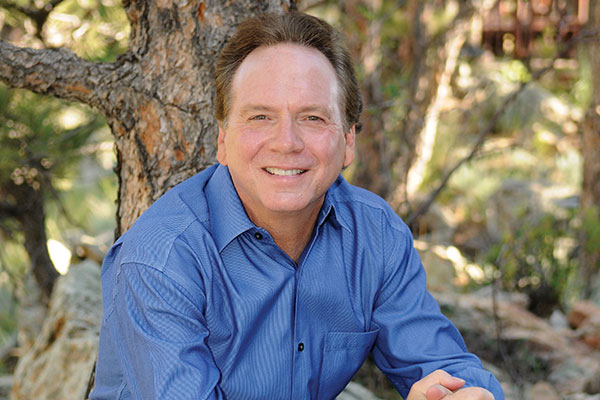The Grief and Mourning of Cancer
by Alan D. Wolfelt, PhD
Not only am I a prostate cancer survivor, but I am also a grief counselor and educator. For 40 years, I have taught people about the need to embrace and express their grief after a significant loss so they can go on to live and love well again. I now know firsthand that cancer is one of these significant losses.
Cancer Causes Loss
From the moment you first learned you had cancer, you began to experience losses of many kinds. To begin with, you lost your health. Even if you recovered your health in the months and years after your treatment, you know what it means to feel healthy one moment and frighteningly unhealthy the next. You also lost your sense of normalcy and safety. Few diseases turn your life so topsy-turvy for such a lengthy period. And the uncertainty of your prognosis likely made you feel unsafe and anxious – for yourself as well as for those who love you and depend on you.
In addition, if your treatment was extensive or is ongoing, you may have lost your ability to work. Loss of income combined with the significant cost of cancer treatment may have resulted in the loss of your financial stability. Along the way, perhaps you lost a body part or two, your hair, your appetite, your memory (thanks to chemo brain), and even some of your friends. Not everyone is capable of the steadfastness it takes to be a friend through cancer.
Loss Results in Grief
When we lose things (or people) we care about or that are important to our sense of self, we naturally grieve. Grief is what we think and feel on the inside when we lose someone or something important. When someone we love dies, for example, we experience shock, anger, guilt, sadness, and other emotions. We think many dark and difficult thoughts. All these thoughts and feelings go into a pot called grief.
You have grieved since your cancer diagnosis, I am sure. I know I did, and I continue to do so. Those who love us have grieved too. What is essential now is for us to embrace our grief as normal and necessary and find ways to express it.
Without mourning, grief festers. Contrary to the cliché that “time heals all wounds,” grief does not magically dissipate through the passage of time alone.
Grief Requires Mourning
Mourning is the word for grief expressed. While grief is what’s bottled up inside you, mourning is the opening up, the letting out, and the sharing. Without mourning, grief festers. Contrary to the cliché that “time heals all wounds,” grief does not magically dissipate through the passage of time alone. If it is not expressed fully and honestly, it tends to result in ongoing problems such as depression, difficulty experiencing intimacy, chronic anxiety, substance abuse, and others.
Mourning can take many forms. It might include talking to others about our thoughts and feelings, joining a support group, journaling, crying, praying, creating artwork – anything that helps us express what’s going on inside. Just as there are no right or wrong feelings in grief, there are no right or wrong ways to mourn – as long as you mourn somehow. What has worked for me is expressing my feelings to close friends and keeping a journal.
You have probably noticed that those who care about you also need to mourn their grief over your illness. Understand that this is normal and necessary. If your own struggles are making it difficult for you to support the grief of your loved ones, you can validate their need to mourn while also encouraging them to talk to others.
Mourning helps us not only cope with our cancer but also live fully and purposefully. It helps us survive and thrive – no matter how many weeks, months, or years we may yet live, breathe, and love on this Earth.
Dr. Alan Wolfelt is an author and educator on the topic of healing in grief. He serves as director of the Center for Loss and Life Transition in Fort Collins, CO, and is on faculty at the University of Colorado Medical School’s Department of Family Medicine. Dr. Wolfelt has written many books designed to help people mourn well so they can continue to live well, including Understanding Your Grief, The Mourner’s Book of Hope, and Healing Your Grieving Heart After a Cancer Diagnosis, from which this article was adapted. Visit CenterForLoss.com to learn more about the natural and necessary process of grief and mourning or to order any of Dr. Wolfelt’s books.
This article was published in Coping® with Cancer magazine, March/April 2019.


